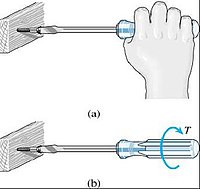
Photo from wikipedia
PURPOSE The System Usability Scale (SUS) is the most commonly used questionnaire to assess usability of healthcare innovations but is not available in Dutch (D-SUS). This study aims to translate… Click to show full abstract
PURPOSE The System Usability Scale (SUS) is the most commonly used questionnaire to assess usability of healthcare innovations but is not available in Dutch (D-SUS). This study aims to translate the SUS to Dutch and to determine its internal consistency, test-retest reliability, and construct validity in healthcare innovations focused on rehabilitation technologies. METHODS Translation of the SUS was performed according to the WHO recommendations. Fifty-four participants filled out the D-SUS and Dutch Quebec User Evaluation of Satisfaction with assistive Technology (D-QUEST) twice. Internal consistency was assessed by Cronbach's alpha. Test-retest reliability was evaluated by Gwet's agreement coefficient (Gwet's AC2) on item scale, and Pearson correlation coefficient (PCC) for the overall D-SUS scores. Construct validity was assessed with the PCC between the D-SUS and D-QUEST overall scores (Netherlands Trial Register, ID: NL9169). RESULTS After translation, Cronbach's alpha was 0.74. Gwet's AC2 was 0.68 and the PCC between the first and second overall D-SUS scores was 0.75. No significant difference in D-SUS score between the two measurements was found. Repeatability coefficient was 18.4. The PCC between the D-SUS and D-QUEST overall scores was 0.49. CONCLUSIONS The D-SUS is a valid and reliable tool for usability assessment of healthcare innovations, specifically rehabilitation technologies.
Journal Title: Disability and rehabilitation
Year Published: 2022
Link to full text (if available)
Share on Social Media: Sign Up to like & get
recommendations!